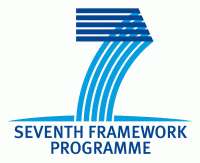|
Page 1 of 2
 The Seventh Framework Programme for research and technological development (FP7) is the European Union’s main instrument for funding research in Europe. FP7, which applies to the years 2007-2013, is the natural successor to the Sixth Framework Programme (FP6), and is the result of years of consultation with the scientific community, research and policy making institutions, and other interested parties. The Seventh Framework Programme for research and technological development (FP7) is the European Union’s main instrument for funding research in Europe. FP7, which applies to the years 2007-2013, is the natural successor to the Sixth Framework Programme (FP6), and is the result of years of consultation with the scientific community, research and policy making institutions, and other interested parties.
FP7 has some key differences to earlier EU research programmes, including:
- Increased budget – the FP7 budget represents a 63% increase from FP6 at current prices, which means additional resources for European research. It is also a strong political message to the EU Member States, which have committed themselves to increase research spending from 2% of GDP currently to 3% in 2010.
- Focus on themes – a strong focus on major research themes (e.g. health, ICTs, space, etc.) within the largest component of FP7 – Cooperation – makes the programme more flexible and responsive to the needs of industry.
- European Research Council (ERC) – the first pan-European agency for funding research, the newly created European Research Council, aims to fund more high-risk yet potentially high-gain European research at the scientific frontiers.
- Regions of Knowledge – FP7 is establishing new Regions of Knowledge that bring together the various research partners within a region. Universities, research centres, multinational firms, regional authorities and SMEs can all link up and strengthen their research abilities and potential.
- Risk-sharing finance – a new Risk-sharing finance facility is to enhance backing for private investors in research projects, improving access to loans from the EuropeanInvestment Bank (EIB) for large European research actions.
- Joint Technology Initiatives (JTIs) – a user-driven follow-up to the European Technology Platforms (ETPs), the JTIs are a new concept that brings together different partners to take on objectives that cannot be reached via the ‘Calls for Proposals’ approach. JTIs specifically address those areas of research activity where enhanced collaboration and considerable investment are essential to long-term success.Single Helpdesk – a single Helpdesk, the 'Research Enquiries service', acts as the first point of contact for potential participants, answering questions on all aspects of EU-funded research and assisting parties new to participation in the Framework research programmes.
FP7 still retains the important elements of earlier Framework research programmes. The same emphases remain on consortia of European partners, collaboration across borders, open coordination, flexibility and excellence of research.
The priorities in FP7 are contained within several specific programmes, as follows:
|



